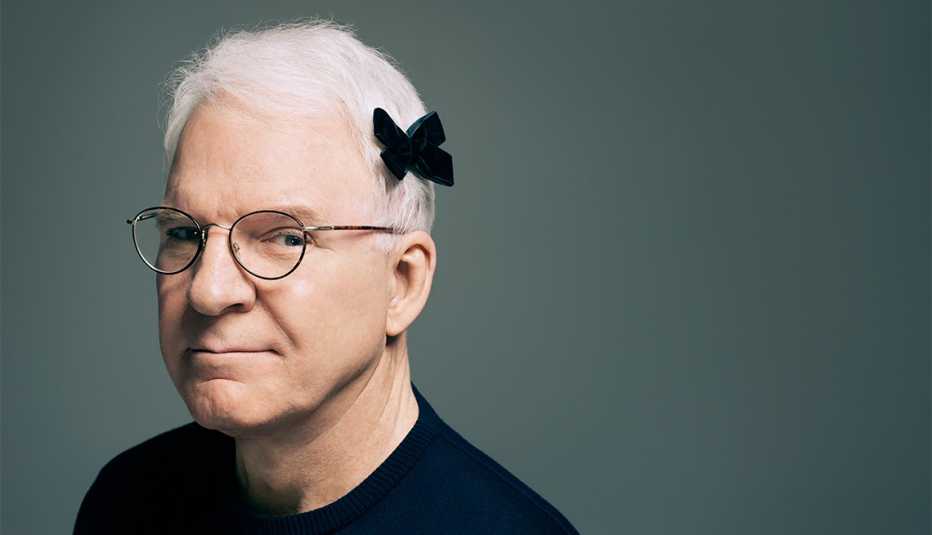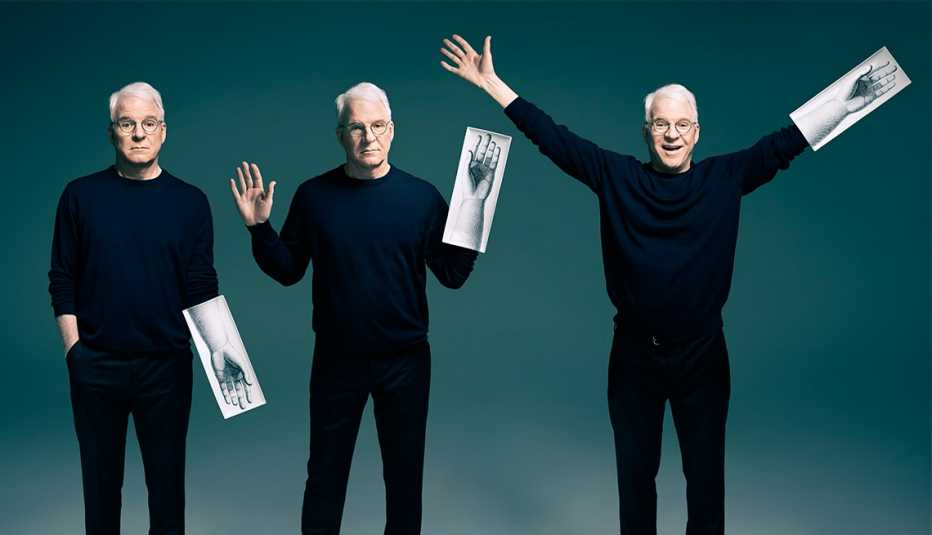AARP Hearing Center
TRY FOR A MOMENT to imagine the horror of being Steve Martin's manager in 1981, the year he abruptly quit stand-up comedy: "You're the most famous comedian on the planet, Steve. You're filling 45,000-seat stadiums every night, and you're just going to — what? What are you thinking, Steve?" Imagine, too, what the world would look like if Martin had chosen to grow his "brand," as they call it now: King Tut souvenir shops, Wild & Crazy Menswear stores, a three-decade residence on the Las Vegas strip, his own streaming TV channel.
His friend the writer Dave Barry still marvels at Martin's willingness to gamble. "Here's a guy who was the No. 1 nonmusical live act in the world. He could easily have kept that going till today," Barry points out. "But he's a restless guy."
Of course, Martin didn't exactly vanish when he ditched the throngs lining up to see his arrow-through-the-head bit. He went on to try his hand in movies — as one of the preposterous ¡Three Amigos!; as a frantic father of the bride; as a heroic modern-day Cyrano. He has also written novels, recorded bluegrass albums with Edie Brickell and toured the country playing banjo with the Steep Canyon Rangers band. Oh, yes, he's written plays, too — including a new comedy about marriage, Meteor Shower.
But recently, Martin decided to return to his roots. He has been touring the country with his longtime friend Martin Short — a fellow Amigo — in a show called An Evening You Will Forget for the Rest of Your Life: stand-up comedy, banjo music and sharp frenemy ribbing onstage. The actress and comedian Catherine O'Hara describes the act as "a children's show for adults." Crowds love not only the nostalgic jokes and characters but the new, sometimes improvised material that Martin and Short bring to the stage. It's the first time in all these years, Martin says, that he has truly loved performing. He and his old friend have an understanding: "We have very similar boundaries with each other, which are none."


Even after five movies and countless evenings together, Short is still tickled by Martin's combination of wit and silliness. "We were going to a party after the Oscars together, and Steve was tweeting, and I said, 'C'mon, what are you doing?' And he'd just tweeted, 'I'm going to the Vanity Fair party, and I hope to meet Cher so we can be on a first-name basis.' " (The joke is a bit inside as well as being silly: Even before his hair turned prematurely gray, Martin was a writer and bit player on the Sonny and Cher Comedy Hour.)
So this longtime master of reinvention has reinvented himself right back into a comedy tour. But this time, he seems to have found a new kind of fulfillment.
MARTIN IS RESERVED by nature, so talking to him is not easy, and he doesn't try to make it easier. When I meet him at the Louisville Palace theater in March, during his Evening You Will Forget tour, he bypasses the comfortable green room set aside for performers. Instead, insisting he likes the quiet, he leads me up several flights to a tiny, bare garret that has all the warmth of a police interrogation room. I am out of breath, but, at 71, he is not. Martin looks virtually the same as he did 30 years ago — "the charm," says Short, "of looking 70 when you're 30." Tall and slim, Martin moves like a much younger man. "I do exercise, but gently," he says. "I go on a treadmill and listen to a novel or watch television. I lift weights, but I just do my chest and arms." Having a younger wife, and a child — his first — still in nursery school, is to Martin a responsibility as well as a pleasure. "I do it for myself," he says, "but I do it for them, as well." One senses he was more than ready for fatherhood, as he wrote not one but two kids books before his daughter was born.



































































